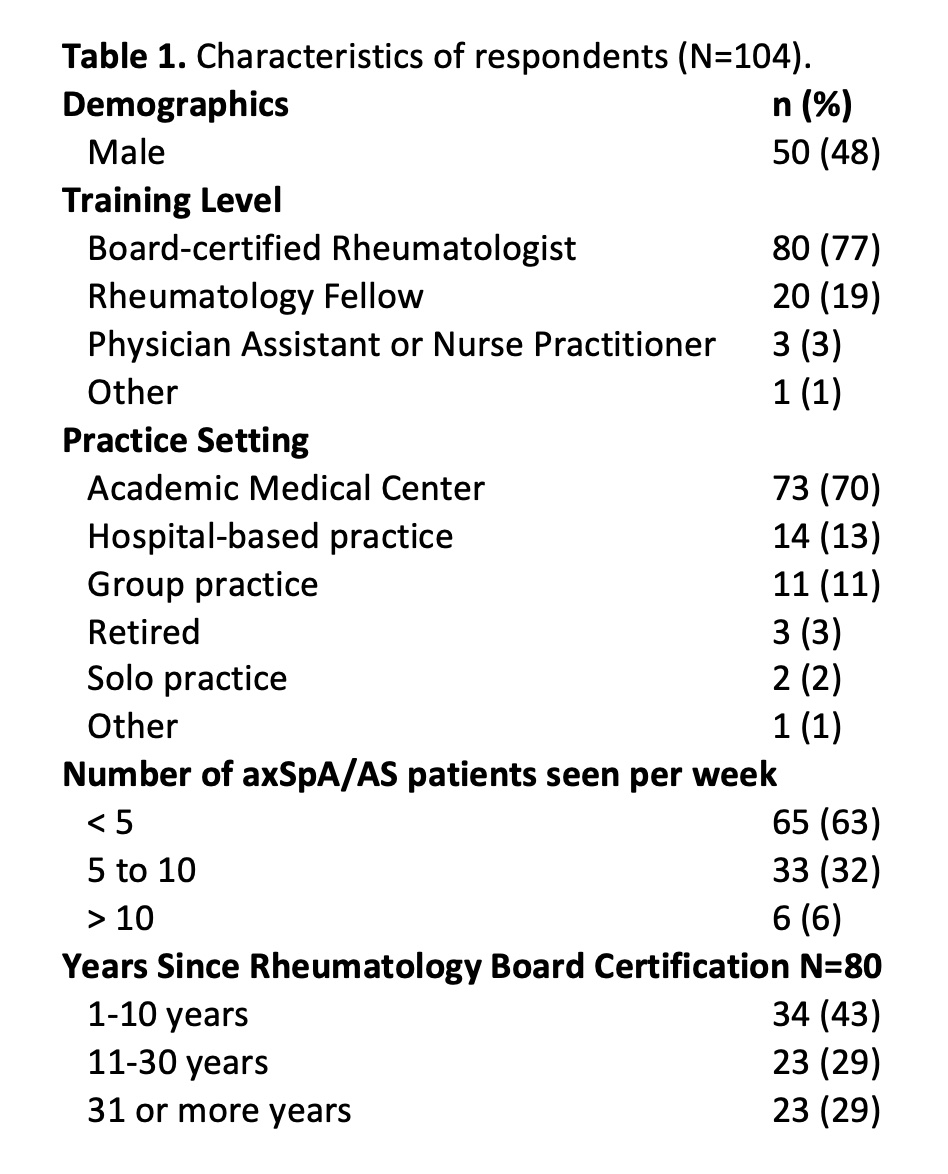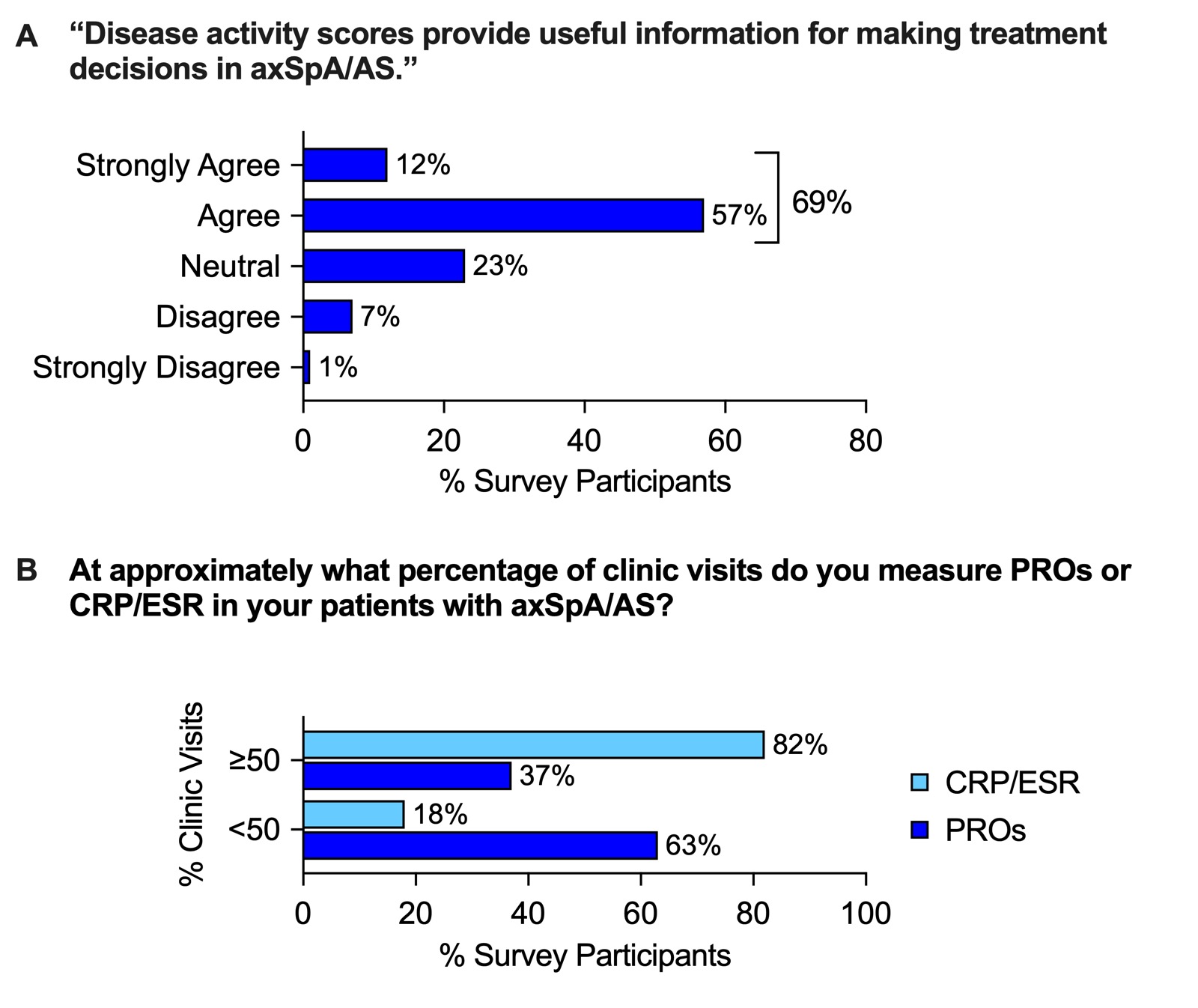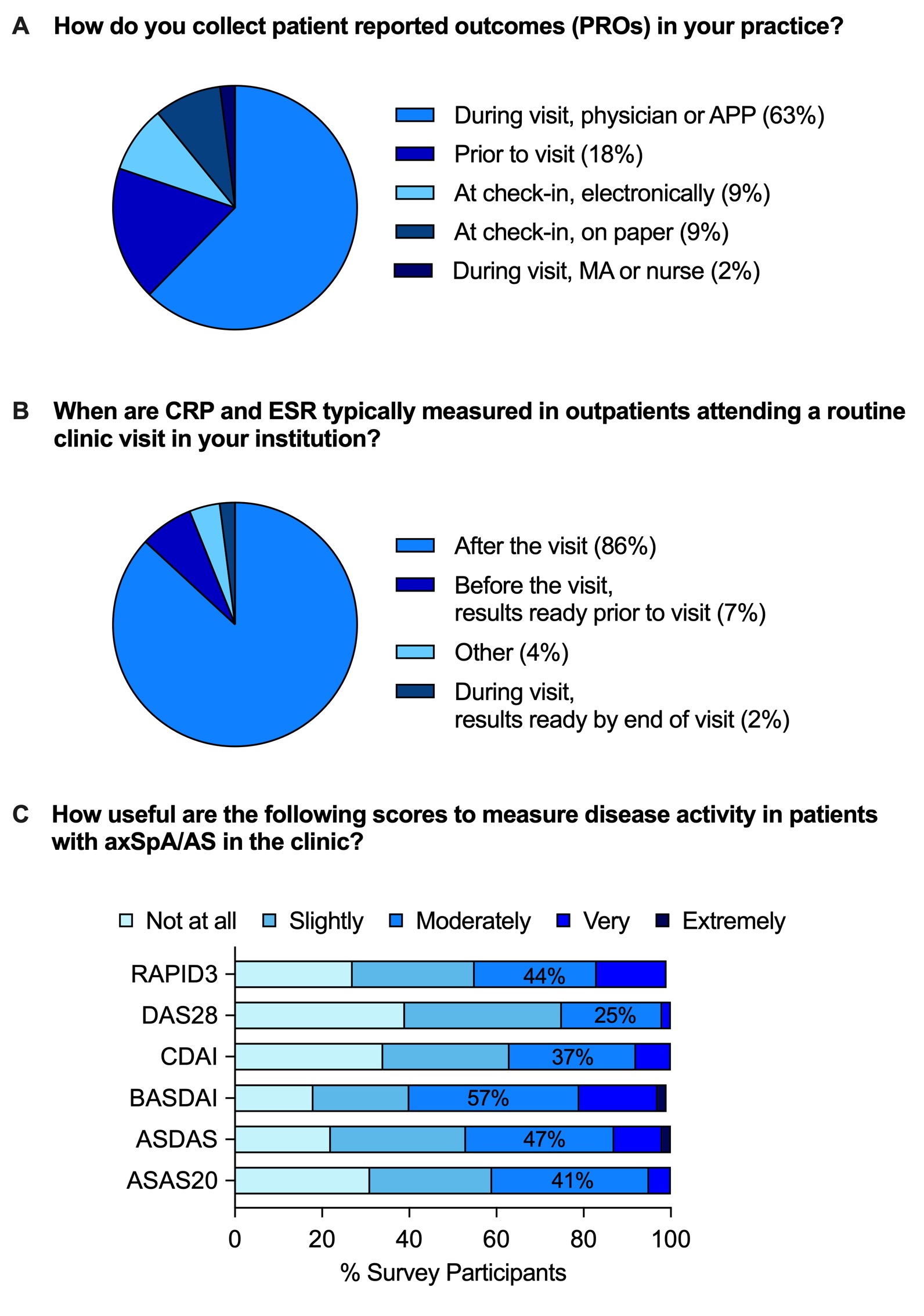Session Information
Session Type: Poster Session B
Session Time: 9:00AM-11:00AM
Background/Purpose: Several sets of treatment recommendations for axial spondyloarthritis and ankylosing spondylitis (axSpA/AS) have been published. Clinical practice guidelines are not followed consistently by health care providers. Five groups of factors are thought to contribute to poor adherence: guideline, practice setting, patient, health professional and societal factors. To better understand potential barriers to the implementation of treatment guidelines in axSpA/AS, we performed an online survey amongst rheumatology care providers.
Methods: Based on the results of a focus group, a survey was developed with 20 questions and an estimated completion time of 5-7 minutes. The survey was distributed via email to 441 rheumatology care providers in the New England States (CT, MA, ME, NH, RI, VT) in January 2023. Anonymized data were collected in REDCap.
Results: 104/441 (24%) health professionals participated including 80/104 (77%) board-certified rheumatologist and 20/104 (19%) fellows. 73/104 (70%) participants work in academic medical centers while 27/104 (26%) work in either hospital-based, group or solo practices.
Survey participants identified UptoDate (85%), treatment guidelines (74%) and colleagues (54%) as relevant sources of knowledge for managing axSpA/AS patients. 64% and 53% of participants considered themselves to be at least moderately familiar with the ACR/SAA/SPARTAN and the ASAS/EULAR recommendations, respectively.
The ACR/SAA/SPARTAN guidelines recommend regular-interval use and monitoring of a validated AS disease activity measure and monitoring of CRP/ESR. While 69% of survey participants agreed or strongly agreed that “disease activity scores provide useful information for making treatment decisions in axSpA/AS”, only 38% measure patient-reported outcomes (PROs) frequently (in 50% of clinic visits or more) while 82% measure CRP/ESR frequently. PROs are typically recorded during clinic encounters (63%) while CRP/ESR are obtained after the clinic encounter (86%).
When asked about the utility of specific scores to measure disease activity in patients with axSpA/AS, BASDAI and ASDAS were considered to be at least moderately useful by 57% and 47% of participants, respectively, while 41% thought the same about the ASAS20. BASDAI and ASDAS were considered to very or extremely useful by 20% and 13%, respectively.
Conclusion: Treatment guidelines are an important source of knowledge for rheumatologists when managing patients with axSpA/AS. Although there is general agreement that disease activity monitoring is important, implementation of the respective guideline recommendations is lacking. Potential reasons may include lack of familiarity and an underdeveloped infrastructure to efficiently collect PROs prior to clinic visits. Guideline uptake and implementation should be considered in future updates of axSpA/AS treatment recommendations.
To cite this abstract in AMA style:
Ermann J, Sinnappan S, Forte A. Where Are We with Implementing Axial Spondyloarthritis Treatment Recommendations and Disease Activity Monitoring in Clinical Practice – Results of an Online Survey Amongst Rheumatology Care Providers [abstract]. Arthritis Rheumatol. 2023; 75 (suppl 9). https://acrabstracts.org/abstract/where-are-we-with-implementing-axial-spondyloarthritis-treatment-recommendations-and-disease-activity-monitoring-in-clinical-practice-results-of-an-online-survey-amongst-rheumatology-care-providers/. Accessed .« Back to ACR Convergence 2023
ACR Meeting Abstracts - https://acrabstracts.org/abstract/where-are-we-with-implementing-axial-spondyloarthritis-treatment-recommendations-and-disease-activity-monitoring-in-clinical-practice-results-of-an-online-survey-amongst-rheumatology-care-providers/



